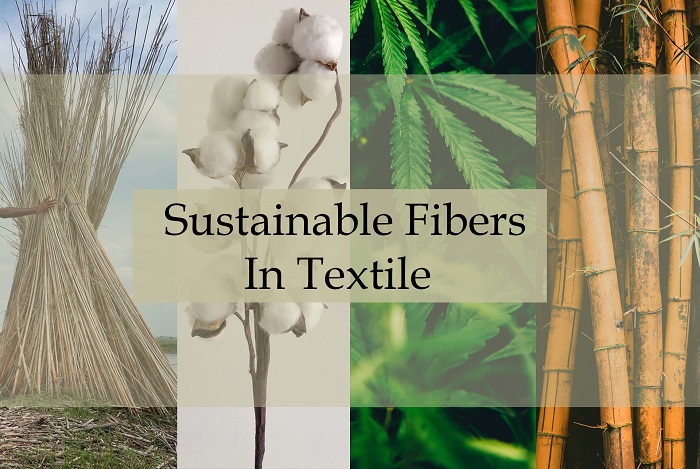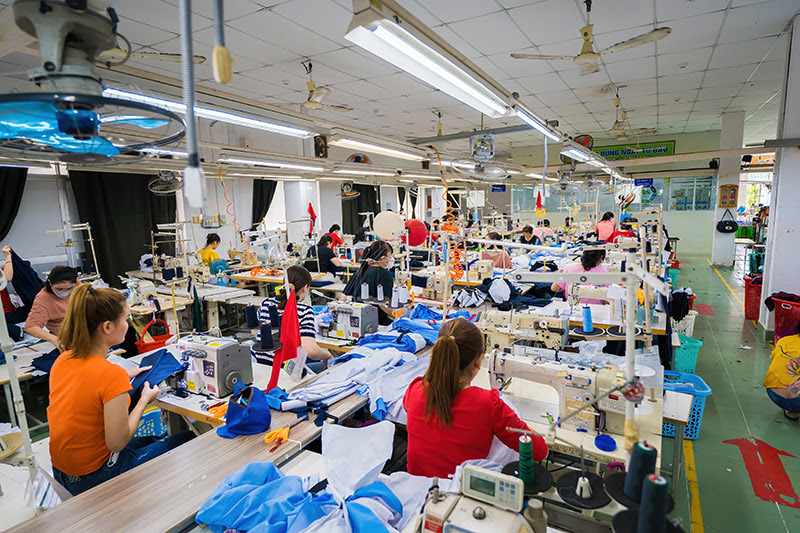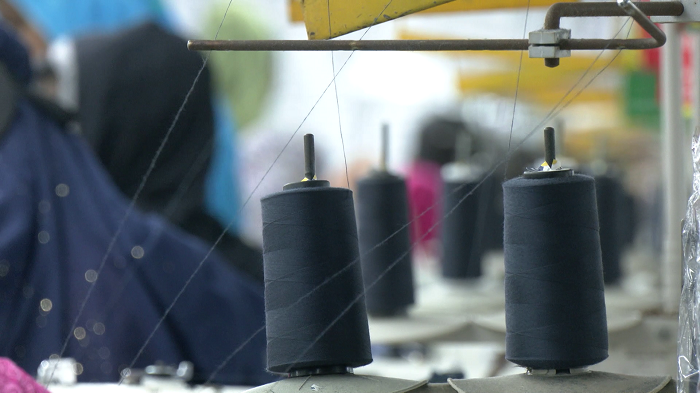A resurgence demand from China for cotton yarn has boosted India’s export, which has gone up by 55 per cent in the first four months of the current financial year. If the trend continues, cotton yarn exports will likely hit a new record this year.
“If the trend continues, cotton yarn exports would beat all previous expectations to set an all time record this year,” says D K Nair, Secretary General, Confederation of Indian Textile Industry. Reports reveal the Cotton Yarn Advisory Board has projected a marginal 14.2 per cent increase to 1,150 million kg in cotton yarn exports from India this financial year. But actual exports could be even higher. Total cotton yarn production this year is estimated at 4,000 million kg. “The substantial increase in exports, however, has not affected domestic supply to mills at all. Domestic mills are operating smoothly with adequate capacity,” said Nair.
Further the exponential growth in cotton yarn shipment has lowered the prospects of cotton exports as Chinese importers find purchase of fibre cost effective. Another factor which helped exports is the record depreciation in the rupee against the dollar. Exporters have rushed to sign a pact with importers at the current exchange rate and lock in till exports are executed. Also, cotton prices have jumped 11.79 per cent to trade at Rs 13,329 a quintal mid August against Rs 11,923 a quintal a month ago.
Intertek, a leading provider of quality and safety services to a wide range of industries around the world, has opened a new apparel and textiles testing laboratory in Hanoi to support the growing textile and garment industry in the northern Vietnam. The new facility occupies more than 6,000 sq. ft. and is fully equipped with state-of-the-art equipment combined with highly qualified engineers and chemists to provide reliable quality and safety solutions. The new lab performs textile testing for dimensional stability, colour fastness and seam strength, among others. The lab also supports full testing capabilities to US Consumer Product Safety Improvement Act (CPSIA) requirements and restricted substances regulations.
Thanh Nam Nguyen, General Manager for Softlines, Hardlines and Toys business lines, said, “The addition of the Hanoi facility aligns with Intertek’s continuous effort to provide a local presence for our customers, wherever their business operations are located. This provides a distinct competitive advantage in an industry where getting safe and high-quality products to market is imperative for success.”
The Hanoi apparel testing laboratory is the most recent addition to Intertek’s global network of 45 textile and footwear laboratories that serve fabric, apparel, fashion accessory, home textile and footwear retailers, brands and manufacturers. In addition to testing, Intertek offers the following services for textile, footwear and apparel customers: chemical management, inspections, certification, auditing, safety and compliance training, outsourcing and advisory, quality assurance and risk management.
Kuruwita Textile Mills, a unit of Sri Lanka's Brandix Apparel group reported exports to Bangladesh rose in June 2013 quarter. However, the company’s looses increased amid increasing costs. The firm lost Rs 211 million in the quarter up 355 per cent from a year ago period. It reported losses of Rs 8.46 per share in accounts filed with the Colombo Stock Exchange.
Kuruwita Textiles said revenues rose 11 per cent to Rs 1.82 billion in the June quarter, but expenses rose at a faster rate at 23 per cent to Rs 1.98 billion, a gross loss of Rs 157 million against a profit of Rs 44.7 million a year earlier. Exports to Bangladesh had grown to 41 per cent of sales in the June quarter up from 31 per cent last year. "However, it has to be noted that the Bangladeshi orders carry comparatively lower margins due to the lower average selling prices partly due to the effects of the off season for the company’s product range," Chairman Aslam Omar told shareholders.
He said raw material costs were 15 per cent higher than last year but they could not be passed on fully with higher selling prices. Electricity costs were also higher. "The management has been actively looking at mitigating these adverse impacts and is currently reviewing alternatives," Omar said without elaborating.
Major textile manufacturers in Japan have been entering the field of clothing design and manufacturing, aiming to increase profitability through business expansion by supplying products to general merchandisers and boutiques, where they are sold under private labels. In mid-June, Osaka-based Teijin Frontier held a spring/summer fashion preview for retailers, where a wide range of products, including women’s casual wear and men’s suits, were on display. In addition to showing off fabrics with deodorant, cooling, stretch and other features, the company highlighted the cutting-edge technologies used to make their products, such as a special fibre that gives garments a unique texture.
Toray Industries embarked on full-fledged manufacturing of finished apparel around 2006 and became a textile industry pioneer for its entry into a downstream business. The expansion trend among major textile makers has been partly inspired by Uniqlo’s business model. Uniqlo has grown into a self-styled manufacturing retailer, handling all aspects of production from planning to manufacturing and selling. Meanwhile the company has avoided price competition by launching products with innovative features such as heat-tech, a line of heat-generating underwear.
With Unitika considering producing kids’ clothes and Daiwabo Holdings eyeing the casual wear market, textile makers are expected to continue making waves in the apparel business.
Leading textile machinery manufacturer Karl Mayer will present its latest tricot and raschel machines and new ideas for manufacturing innovative sportswear and outerwear fabrics at Obertshausen on September 25 at its open house event. For the company’s Business Unit Warp Knitting the event will take place at Karl Mayer’s own Development Centre. Visitors will have the opportunity to see the latest machines developed by the company, including a tricot machine type TM 4 EL, the Multibar Jacquardtronic Lace MJ 42/1B and the high-performance tricot machine HKS 4-M EL.
Textile machinery factory Karl Mayer was set up in 1937. A family company, it has grown into world’s number one in the field of warp knitting technology. Recently at Techtextil in Frankfurt, the company put the spotlight on 3D textiles, showcasing room elements made from warp-knitted, sound-absorbing spacer textiles. The stable weft-inserted structures have already been used in India as geotextiles and coating/backing substrates.
The reinforcing textiles made on Karl Mayer’s high-performance multiaxial machines are being employed for different applications in the composites sector.
www.karlmayer.de/
Textile and apparel manufacturers in Kenya and Nigeria are pinning their hopes on government policies and incentives for the revival of the industry. The African textile sector is among oldest in the world with highly skilled workers but the industry lost its pride due to several reasons and currently it is faced with several challenges.
The reduction of import duty to zero per cent on all synthetic, acrylic, polyester and high ferocity yarns from 10 per cent in 2010-11 is one of the initiatives by Kenya to create more employment and improve export earnings. Most textiles and apparels meant for exports are produced at the Export Processing Zones in Kenya. With the end of the multi fibre agreement in 2005, export-oriented firms have been on the downturn due to unfair competition and loss of orders.
Nigeria has the largest textile industry in sub-Saharan Africa after South Africa. The sector directly employed about 3,00,000 people and was capable of producing over 1.5 billion linear mt. of fabrics. But it currently employs only 25,000 direct employees and produces less than 250 million linear mt of fabrics. Now Nigeria plans to impose a higher tariff on imported fabrics to discourage imports and it will also come out with a package of incentives for local manufacturers.
The Spanish textile industry’s turnover has continuously dipped for two consecutive months in May and June 2013. The turnover index of the textile industry in June 2013 recorded a decrease of 9 per cent, after a fall in May when it registered a decline of 3.6 per cent.
The decline in textile industry turnover is the largest compared to the average turnover of the Spanish industrial sector, which fell by 4 per cent in June 2013. Contrary to the textile industry, the turnover of the garment manufacturing sector in Spain rose by 3 per cent in June, compared to a dip of 1.7 per cent in May 2013.
The New Orders Index (IEP) of industries related to the Spanish apparel sector grew unevenly in the month of June 2013. The IEP of the clothing industry recorded an increase of 15.4 per cent whereas that of textiles registered a decrease of 2.4 per cent.
The IEP in manufacturing of knitted fabrics, carpets, rope, non-woven fabrics, textile products for technical and industrial use, as well as other textile products also decreased by 0.9 per cent.
In June 2013, the textile sectors production also fell by 5.4 per cent year-on-year. Spanish companies have developed many innovations like automatic reeling machines, circular knitting machines for fine gauge sweaters and clothing inspection by artificial vision, electronic sectional warping machines with visual width control, re-reeling machines and automatic reeling machines.
Many Turkish textile companies which had units in Egypt have suspended their operations and future investment plans in the country escalating violence. Many foreign companies are concerned about their investments in Egypt in the high-risk environment. Some Turkish textile firms have decided to halt operations until the violence ceases.
There are many Turkish textile companies, which make up around 80 per cent of Turkey’s more than $2 billion investments in Egypt. LCWaikiki started retailing operations in Egypt two years back. It has shut down its stores in Cairo and Alexandria and is continuing operations only in Hurghada.
Some companies have already announced that they would halt their production in the country due to the state of emergency, including Turkish Yıldız Holding, European oil giant Shell and Swedish home appliances maker Electrolux. Egypt has been highly favored by Turkish and other companies to establish production facilities thanks to its low production costs and ability to sell custom-free goods to many countries.
Wal-Mart, GAP and other major US retailers will implement a Bangladesh factory-safety plan. The group is made up of 20 companies known as the Alliance for Bangladesh Worker Safety. It has pledged to put fire and building safety standards in place by September 10.
Alliance for Bangladesh Worker Safety is the US industry's way of improving working conditions in facilities in Bangladesh and preventing disasters like the garment factory collapse in April. Retailers, who include Macy's and Target, have struck a five-year deal to train workers and inspect factories. They will require factory owners in Bangladesh to pay for their own safety renovations but have committed to providing $100 million in low-cost loans toward the effort.
Meanwhile owners of some 500 readymade garment units in Bangladesh have agreed to invest in workers' safety systems, fire-fighting equipment, evacuation mechanism, proper installation of machines and a healthy work environment. Factory owners are trying to introduce compliance following constant pressure from home and abroad. Nearly 1,830 garment workers have died so far in different building collapses, fires, and other accidents from 1990 to 2013.
Myanmar’s garment exporters have made record earnings in the first quarter of this year. Exports almost doubled in the period from January to March over the same period last year. Maximum orders came from Japan and South Korea. The US and European countries are also increasing garment orders after Myanmar was allowed into a trade preferences scheme by the European Union. Many Myanmar garment factories have started exporting to the US. Now the Myanmar Garment Entrepreneurs Association is training workers, to enable them to cater to the rising demand for garments from domestic as well as overseas markets.
Myanmar’s garment industry is labor intensive and the industry’s growth can create a large number of jobs. The country has a long history of making yarn, fabrics and garment. Currently, there are over 200 garment factories in Myanmar, employing about 20,000 people.
Some of Thailand's top garment companies will be moving their operations to Myanmar soon. Outsourcing labor to Myanmar offers significant cost savings to western manufacturers, as Burmese workers are among the lowest paid in Asia. The nation has the potential to develop into a viable apparel sourcing destination.
- 1
- 2
- 3
- 4
- 5
- 6
- 7
- 8
- 9
- 10
Peeling Back the Fabric: Glimpact study gives true ecological threads of apparel…
A groundbreaking new study by Glimpact, has pulled back the curtain on the often-obscured environmental footprint of the apparel industry,... Read more
Embracing Innovation: The rise of sustainable fibers in a changing world
The quest for sustainable and high-performance alternatives to traditional resources has sparked a revolution in fiber use. According to the... Read more
Garment Tech Istanbul to showcase cutting-edge apparel technology and drive glob…
A global hub for apparel innovation Istanbul will welcome leading global players in garment, embroidery, and textile machinery from June 25... Read more
From discarded threads to global trends, Panipat's recycled yarn revolution
Panipat, a city synonymous with textiles, is rapidly evolving from a traditional weaving hub to a powerhouse of sustainable yarn... Read more
Bangladesh emerges strong in global RMG exports as China's loses ground
Bangladesh is rapidly strengthening its position as a major player in the global apparel export market, capitalizing on a shift... Read more
Blossom Premiere Vision returns in June to support luxury fashion's shifting nee…
As the global luxury goods market grapples with a prolonged slowdown, an industry once resilient to crises is now undergoing... Read more
Monforts technologies power sustainability showcase at Kingpins Amsterdam
Denim mills using Monforts systems dominate eco-focused fabric displays At the recent Kingpins Amsterdam exhibition held on April 16-17 at the... Read more
Bangladesh RMG exports navigate new skies amid cost concerns post India's trans-…
Bangladesh's RMG export is adapting to India's revocation of trans-shipment services, marked by maiden freighter flight carrying 60 metric tons... Read more
A stitch in time, fashion's 1% solution to a carbon crisis
The fashion industry, built on trends and textiles, is facing a stark reality: its environmental footprint is unsustainable. Hidden deep... Read more
Threadbare Foundations: Bangladesh’s RMG boom hangs by Indian yarns
Bangladesh’s ready-made garment (RMG) industry is a global juggernaut. Second only to China in apparel exports, the sector is the... Read more












